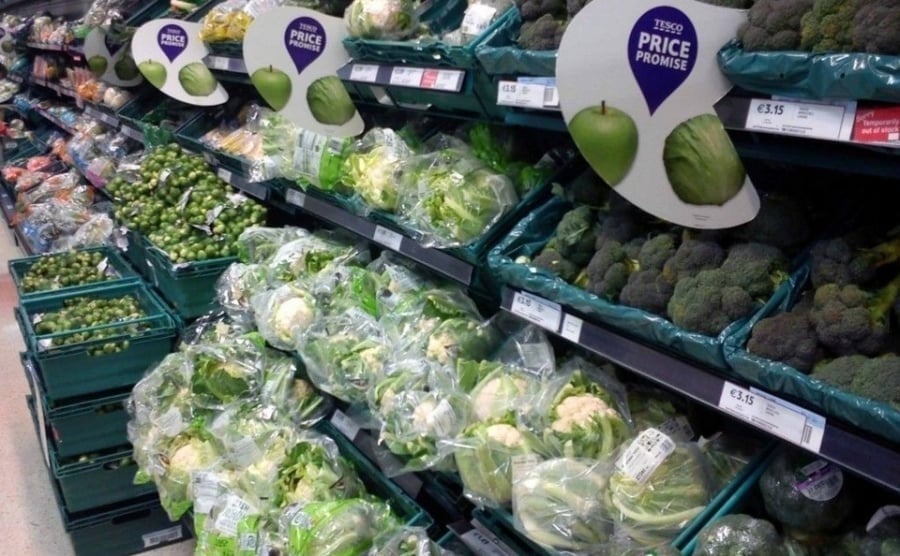Supermarkets often lure customers with attractive discounts, sparking excitement and a sense of scoring a great deal. While saving money on promotions can bring satisfaction, it’s essential to be vigilant. According to supermarket staff, not all discounted items are genuinely worth it. Some products might be nearing their expiration date, of inferior quality, or simply part of a marketing ploy to boost sales. It’s crucial to examine product information and expiration dates to avoid turning a bargain into a regretful purchase.
Pre-peeled Fruits – Convenience May Compromise Safety
It’s common to find trays of pre-peeled and neatly chopped fruits in supermarkets, offering convenience to those who want to eat on the go. However, this convenience comes with risks. According to insiders, these fruit trays are often made from bruised or almost-spoiled fruits. The unsightly parts are discarded, and only the seemingly fresh portions make it into the boxes. Moreover, the peeling, cutting, and storage processes can significantly diminish the fruit’s flavor and increase the risk of bacterial contamination if not properly handled. Consumers are advised to carefully consider their options before opting for these products.

Discounted Milk – Beware of Expiration Dates
Deep discounts on milk, such as “buy one, get one free” deals, can be tempting. However, milk is perishable, and most discounted milk is nearing its expiration date. Unless you plan to consume it quickly, buying in bulk can lead to waste. Always check expiration dates and consider your family’s consumption habits before stocking up.
Off-Season Produce – Pricier and Not Always Tastier
Some vegetables and fruits are available year-round as off-season produce, but they often come at a higher price and may not match the quality and nutritional value of in-season offerings. To have off-season produce, farmers might use growth stimulants or store the produce for extended periods. Instead of chasing these “out-of-season” options, consumers are advised to opt for seasonal produce to save money and ensure fresher, more flavorful meals.
Frozen Seafood on Sale – Don’t Compromise Quality for Price
Supermarket discounts on frozen seafood can be enticing, but it’s crucial to be cautious. Frozen seafood on sale may have been stored for a long time, affecting its freshness and texture and depleting its natural nutrients. Always check production and expiration dates and inspect the packaging for signs of damage to ensure a safe and nutritious family meal.
Ground Meat – Convenience Requires Caution
While ground meat saves preparation time, it comes with quality concerns. It’s challenging to ascertain which meat parts were ground, and freshness isn’t guaranteed. In some cases, ground meat may be made from scraps, excess fat, or meat nearing its expiration date. For peace of mind, buy fresh meat and ask the butcher to grind it, or opt for reputable brands with clear origins.

Bottled Sauces – Convenience at a Cost
Bottled sauces like meat marinades, salad dressings, and dips offer convenience but often contain preservatives, artificial colors, excessive sugar, and sodium. Instead of relying on these products, consider making your sauces at home using natural ingredients. This ensures safer, purer, and more nutritious condiments for your meals.
Traditional Markets – A Fresher, Cheaper Alternative
Supermarkets aren’t always the most cost-effective option. Traditional markets and farmers’ markets often offer fresher and cheaper vegetables, fruits, and other produce. Shopping locally not only reduces your grocery expenses but also supports local farmers and boosts domestic production. Consider a balanced approach by shopping at both supermarkets and traditional markets to ensure meal quality and optimize your family’s budget.





































